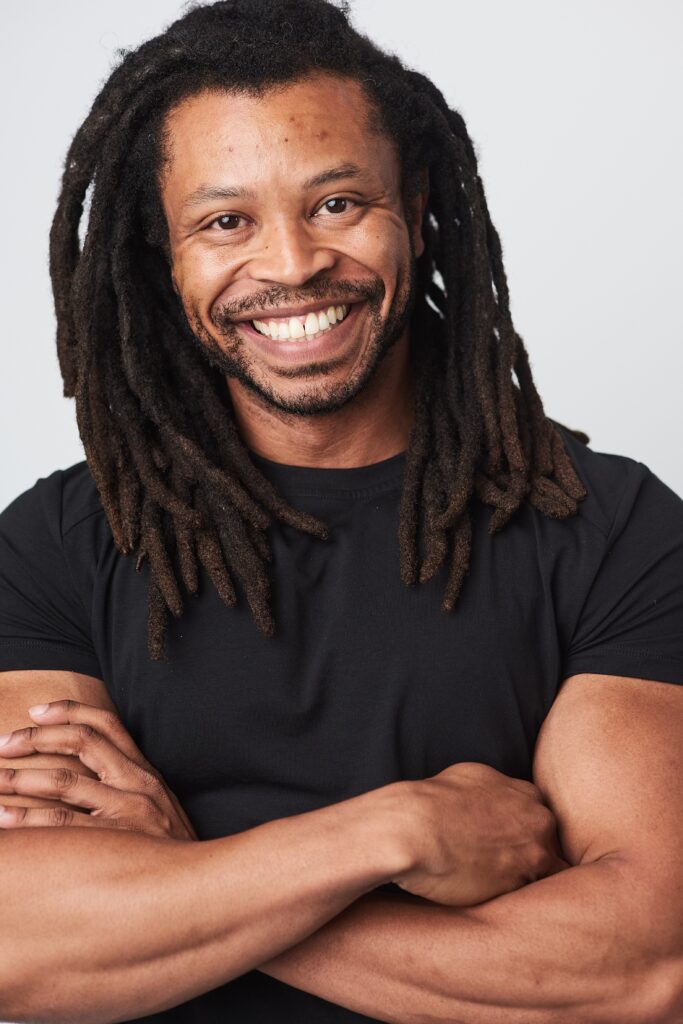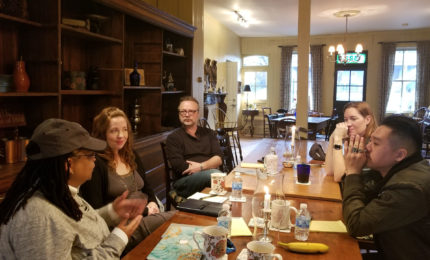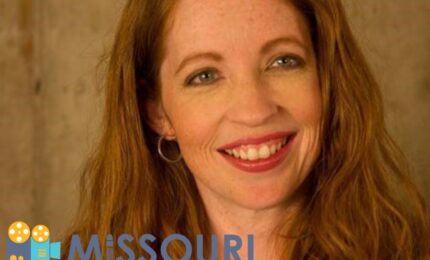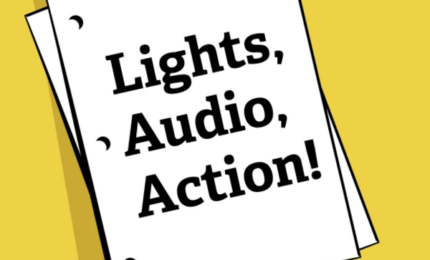Missouri Stories Spotlight with Ron McCants
By Grace Smith | October 11, 2023
Ron McCants is a working screenwriter and has worked on the shows Speechless and Chicago Fire, among others. He was first selected as a fellow in 2020 with cowriter Jon Alston for the script St. Louis Superman, which follows a face-tattooed battle-rapper turned Ferguson activist who struggles with his own mental health while fighting for social justice and running for statewide office against a powerful incumbent. The following year, Ron’s script An Aviary of African Seabirds was selected as a winning Missouri Stories script. It is about an angsty, hothead teen from the Missouri Bootheel at the end of his senior year who doesn’t know what he wants to do with his life until he meets his father for the first time. He must seize the future or be destroyed by the shackles of his hometown. The only way to do that is to get to know who he truly is by getting to know larger-than-life father. Ron was also able to come back as a mentor in 2022.

Where do you get inspiration for your work?
RM: I get inspiration for my work from places that I’ve lived, like Missouri, my family, experiences I’ve had, and the human experience. It can be just a small moment that happened that resonated with me emotionally or a big moment that I tell an autobiographical fantasy about. Really and truly, everything I’ve written has a kernel of my life experience in it.
Tell us about a screenwriter who inspires you and why.
RM: Oh that’s kind of hard. It’s not necessarily that I’m inspired by any screenwriter in particular, but Aaron Soarkin would be one. We write dialogue very differently, but in terms of the things that excite me or us, juicy scenes that embrace character or the musicality of language. I don’t know that he inspires me necessarily, but I do admire him and his work.
Describe your writing process.
RM: Generally, I start with an idea and I write in my head. I think on a subject or a question that might be thematic. When I finish contemplating, I start writing in my journal. Sometimes it’s about the experience I had or my thoughts on a particular subject. I write it to myself in prose, like you would in [a] diary. I think about the world and the question I’m trying to explore. After I determine what excites or scares me the most, I think what type of character needs to exist in the world I’m exploring. From there, I design what the show or the movie needs to be in order to be dramatic. Sometimes it takes many permutations to find the right characters and set ups. I start with an A story for my main character, then a B and C story, then I weave them together. I try and draft the script as quick as possible so I have a lot of time to rewrite. I do a rewrite, and then I share the script. If it’s available to me, I like to send 10 pages a week to my writer’s group, to hear the words and get feedback from people I trust.
How do you connect with other writers?
RM: Connecting is hard. Sometimes it’s through networking, going to events, going for a drink, and talking about anything but writing to try and find a real connection. We may not be friends, but at least we have something cool to talk about. I start there first. I don’t trust a lot of people to give me feedback, because they haven’t been on my journey with me, so I try and keep it small to people who will help me expand my journey, my vision, and my voice. It’s a two sided thing, on one side, it is to connect with them personally so if we are in a writer’s room together we can work well together, but on the other side, when I’m writing things on spec, I have a very specific group of people I use for support.
How has being a Missouri Stories Fellow affected you?
RM: It’s made me feel validated, because most of the stuff I write is set in Missouri or Tennessee, it’s the stuff I like to write and I’m trying to make a space for this. To see that Missouri Stories and Missouri Stories Fellows are making content about Missouri and in Missouri, it validates the stories that I’m trying to tell. Being a fellow and coming back as a mentor, it just feels really good to be part of this community and know that there is some support for what I’ve been doing, what we’ve been doing, and that feels really great when you feel like you’ve been doing something completely alone.
What are you up to now?
RM: Well today the strike ended. I’m writing, trying to get further along on two different scripts. I’ve reengaged with my showrunner, and hopefully we will be going back soon. I’m trying to close out business that has developed this year so my slate is pretty clean, so I can hit the ground running. It’s going to take a year or two recover from the strike. Even though the strike started May 1st of this year, the effects of it started about 8 months before that, because studios didn’t want to make a deal with a mid-level writer like me in case of the strike. I just got to work my butt off.



